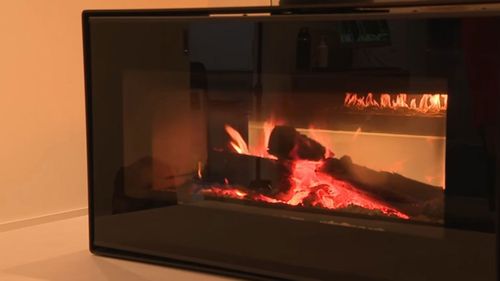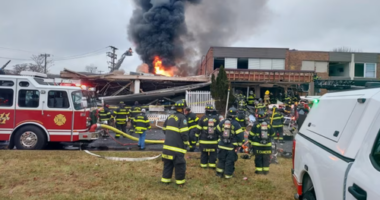Share this @internewscast.com
Wood heaters have been a traditional source of warmth during winter in Australian households, but the smoke they produce has led to health concerns and disputes among neighbors.
Inhaling wood smoke is recognized as a trigger for asthma and has long-term associations with cardiovascular issues like heart attacks and strokes, along with respiratory illnesses and even cancer.
New research has revealed the impact from their smoke on the country’s health.

In Victoria, wood heaters account for the second-highest levels of emissions, resulting in an estimated 163 premature deaths annually. However, this rate is relatively modest, with 2.7 deaths per 100,000 people.
Although South Australia and Tasmania have lower overall emissions, the health consequences are more pronounced. Researchers estimate that wood heater smoke leads to approximately 4.07 premature deaths per 100,000 people each year in South Australia, translating to a total of 69 early deaths.
Tasmania’s premature death rate is close behind at 4.03 per 100,000 (21 premature deaths in total).
In the Australian Capital Territory (ACT), wood heaters are responsible for fewer overall emissions, but they still contribute to an estimated nine premature deaths each year, which is about 2.2 deaths per 100,000 people.
Professor Fay Johnston, a public health expert and environmental epidemiologist from the Centre for Safe Air, believes that the research findings might underestimate the actual impact.
“The true health impact from wood heaters could well be higher … it’s important to recognise that some areas, like Tasmania, Canberra and Armidale in NSW, have local studies and real-world monitoring data showing even worse wood heater pollution levels and health outcomes than the national model suggests.”
Asthma Australia is concerned state and territory governments are failing the 2.8 million people with asthma by not phasing out wood burners and replacing them with low-emission alternatives, such as reverse-cycle air conditioners.
“Fewer wood heaters would mean cleaner air, fewer asthma flare-ups, and less need for emergency care during winter,” said spokesperson Chris Pearce.
“Every year, we hear from families whose children or elderly relatives end up in hospital simply because someone nearby is using a wood heater. This is avoidable harm.”













